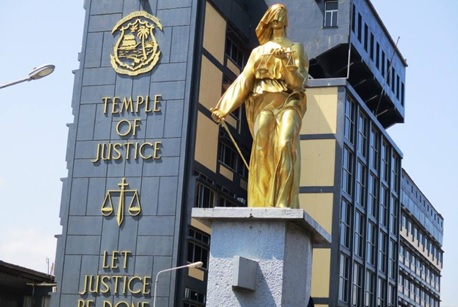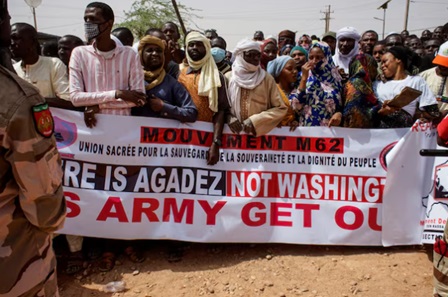The Supreme Court of Liberia delivered a groundbreaking verdict on Wednesday, April 24, 2024, by ruling against President Joseph Nyuma Boakai’s nominations to key tenure positions in the country. These positions, which encompass the Liberia National Lottery Authority (LNLA), Governance Commission (GC), National Identification Registry (NIR), and Liberia Telecommunications Authority (LTA), play crucial roles in Liberia’s governance and public services sectors.
At the heart of this ruling lies a significant debate over the separation of powers and the balance of authority between the executive and judicial branches of government. The Court’s decision underscores its commitment to upholding the rule of law and ensuring that appointments to public offices are made in accordance with constitutional provisions and established procedures.
For Liberia, this decision carries profound implications. Firstly, it reaffirms the independence and integrity of the judiciary, serving as a testament to its role as a check on executive power. In a democratic system, a strong and impartial judiciary is essential to safeguarding citizens’ rights and ensuring accountability among public officials.
Secondly, the ruling highlights the importance of transparency and due process in the appointment of public officials. It sends a clear message that adherence to legal norms and constitutional requirements cannot be bypassed or overlooked, regardless of one’s position or influence.
Furthermore, this decision could potentially pave the way for a more inclusive and consultative approach to future appointments. It may encourage the government to engage in broader consultations with stakeholders, including the legislature and civil society, to ensure that appointments are merit-based and serve the public interest.
However, the ruling presents challenges for President Boakai’s administration. Given that key positions are still occupied by officials President Boakai sought to replace, this could lead to disruptions in the operations of these institutions, potentially impacting their capacity to provide vital services to the Liberian people.
In conclusion, the Supreme Court’s landmark decision is a pivotal moment for Liberia’s justice system and governance landscape. While it underscores the judiciary’s role in upholding the rule of law, it also serves as a reminder of the challenges and complexities inherent in the appointment process. As Liberia moves forward, it is crucial for all stakeholders to work collaboratively to ensure that future appointments are conducted in a manner that is transparent, fair, and in line with the principles of democracy and good governance.







